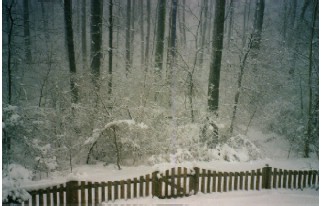INTRODUCTION TO THE ROMANTIC PERIOD AND ASSIGNMENT SHEET
 |
 |
 |
|||||
| Each of these photos is 'romantic'...
Why? |
|||||||
 |
|||||||
 |
|||||||
 |
|||||||
 |
|||||||
RETURN TO TABLE OF CONTENTS FOR GOTHIC HORROR
RETURN TO TOLKIEN --THE TWO TOWERS
INTRODUCTION TO THE ROMANTIC PERIOD AND ASSIGNMENT SHEET
 |
 |
 |
|||||
| Each of these photos is 'romantic'...
Why? |
|||||||
 |
|||||||
 |
|||||||
 |
|||||||
 |
|||||||
1. Supplementary background material that is in the library.
This must be read there, or you can make a copy of it for personal use. .
A. Primary sources from the PHILOSOPHICAL TRADITION: Click here for the selections: (Section 6.)
1. Rousseau --- Emile, and The Social Contract
2. Schopenhauer---On the Vanity of Existence
3. Hegel---The Phenomenology of the Mind
4. Marx---Estranged Labour
5. Kant---The "Copernician Revolution" in Philosophy (useful for Coleridge)
B. Unabomber--- Industrial Society and Its Future essay on romanticism: Click here.
C. Marianne Montgomery---Enlightenment Philosophers and Artists and European Romanticism--Philosophy, Music and Art (See the SJC librarian.)
D. Click here to find an extensive site for philosophy primary source texts listed by author.
2. Introductory materials--LOCATED BELOW:
a. Introductory essay
b. outline of major intellectual ideas
c. contrasting views of imagination -- the 18th century (law of associative attraction) and the romantic view)
d. summary of Romantic period ideology
The Introductory essay you are about to read was written by J.P. Stern, and appeared in his Hitler: The Fuhrer and the People. (University of California Press, 1975), p.43. Note the importance of the title of this book and what the implication is regarding Romanticism.
INTRODUCTION TO ROMANTICISM
Romanticism places individual man in opposition to a world now only conceived and experienced as the world outside, and it sees man in terms which hitherto had been thought contradictory, as a creature both sentimental and heroic. The value by which this new man lives is neither piety nor virtue, neither loyalty nor constancy nor even the search for scientific truth, but his capacity for experience. Romanticism informs him at one and the same time with a boundless sensitiveness and openness toward ever subtler impressions from the world outside, and a capacity for heroic self-assertion: He lives in this conception of himself by his imagination and by his self-determining will. And under both these aspects--as artist and as man of power--he sees himself, not as the executor of a Divine Will or the servant of an acknowledged authority or the member of a preestablished hierarchy, but as a maker and creator. The will--not the common will of a body politic but his individual solitary will, mythologized to a heroic dimension--is his instrument. He is a maker of his kingdom: the powerful embattled personality we find in ...[The will] imposes its demands upon the world and attempts to fashion the world in its own image. Romantic, Faustian man forms, and in all but the literal sense creates, his own conditions and thus the world.
To this new conception of man the imperatives of traditional morality, whether Christian or Enlightened, do not apply and, given his assertion of autonomy, it is hard to see that any objective moral scheme, anything but a purely private morality, is likely to command his allegiance. His acts are no longer judged in relation to a publicly sanctioned moral code or agreed scheme of public virtues, or by his conformity to a conscience (for conscience can never be anything but the inward form of a publicly sanctioned moral code). His acts are judged according to a criterion of immanent, inward coherence: that is, according to the degree to which a man's utterances and actions express this total personality and indicate his capacity for experience. Utterances are seen as actions as poetry, and poetry as the consummation of living experience.
[INSTRUCTOR'S HINT: DO NOT APPROACH ROMANTICISM EXPECTING LOGIC AND COHERENCE. THE ESSENCE OF ROMANTICISM IS PARADOX AND A LOVE OF THE 'ILLOGIC', SO FOR A ROMANTIC, 'X' CAN BE TRUE AND NOT TRUE AND BELIEVED AND NOT BELIEVED AT THE SAME TIME!!! YOU HAVE TO FEEL ROMANTICISM.]
ROMANTIC PERIOD OUTLINE
Romantic Antecedents in The Neo-Classical Period
The following excerpt from Epistle One of Essay on Man anticipates the Romantic period:
Then say not man's imperfect, heav'n in fault;
Say rather, man's as perfect as he ought:
His knowledge measur'd to his state and place;
His time a moment, and a point his space.
If to be perfect in a certain sphere,
What matter, soon or late, or here or there?
The blest to - day is as completely so,
As who began a thousand years ago.
III. Heav'n from all creatures hides the book of fate,
All but the page prescrib'd, their state:
From brutes what men, from men what spirits know:
Or who could suffer being here below?
The lamb thy riot dooms to bleed to - day,
Had he thy reason, would he skip and play?
Pleas'd to the last, he crops the flow'ry food,
And licks the hand just rais'd to shed his blood.
Oh blindness to the future! kindly giv'n,
That each may fill the circle mark'd by heav'n:
Who sees with equal eye, as God of all,
A hero perish, or a sparrow fall,
Atoms or systems into ruin hurl'd,
And now a bubble burst, and now a world.
Hope humbly then; with trembling pinions soar;
Wait the great teacher death, and God adore.
What future bliss, he gives not thee to know,
But gives that hope to be thy blessing now.
Hope springs eternal in the human breast:
Man never is, but always to be blest:
The soul, uneasy and confin'd from home,
Rests and expatiates in a life to come.
Lo, the poor Indian! whose untutor'd mind
Sees God in clouds, or hears him in the wind;
His soul, proud science never taught to stray
Far as the solar walk, or milky way;
Yet simple nature to his hope has giv'n,
Behind the cloud - topt hill, an humbler heav'n;
Some safer world in depth or woods embrac'd,
Some happier island in the wat'ry waste,
Where slaves once more their native land behold,
No fiends torment, no Christians thirst for gold.
To Be, contents his natural desire,
He asks no angel's wing, no seraph's fire;
But thinks admitted to that equal sky,
His faithful dog shall bear him company.
QUESTION: A "typical" Romantic, if there is such a thing, would accept and/or reject what Pope has written. In what sense is the passage romantic and anti-romantic at the same time?
I. Theories of art:
A. mimetic
B. pragmatic
C. expressive--this one is for Romanticism
II. Review of 18th century concepts of the universe
A. chain of being in tact
B. metaphor of the clock
C. nature (note especially how this will contrast with romantics)
D. Respect for tradition--classical authors
E. respect for diversity based on scientific observation
F. enlightenment? best of all possible worlds? satire?
III. Romantic concepts of the universe (FRENCH REVOLUTION)
A. chain of being gone
B. metaphor of the plant:
C. nature (note the contrast to the 18th century)

D. Respect for utopian progress in a natural environment
E. suspicious of intellectualism
IV. Philosophical base:
A. THE ROMANTIC PARADOX IS IN PART TO REJECT CLASSICAL RATIONALISM WHILE ACCEPTING IT: CERTAINLY ONE CANNOT GRASP THE CONFLICTING ESSENCES OF ROMANTICISM WITHOUT UNDERSTANDING WHY, FOR EXAMPLE, PLATO'S PERSONA, SOCRATES, USES SENSUAL VERBS TO DESCRIBE MOMENTS OF CONTEMPLATIVE ECSTASY. THE FOLLOWING DIALOGUES SHOULD BE CONSULTED:
1--The Republic--the cave, line and sun allegories, the nature of the forms (beauty, truth, the good), the dialectic, and the tripart division of the soul
2--Meno--on the nature of virtue, the doctrine of recollection, and the preexistence of the soul
3--Symposium--eros, love and the contemplation of beauty
(These works are online and / or in your textbook.)
B. How is nominalism linked to realism?
C. How can we come to intuit the forms?
D. Rousseau and nature
V. Romanticism and religion--what is a religious experience? (Joseph Campbell is worth investigating.)
A. The "sacred space"
B. "Transcendence"
C. Ritual
VI. Romanticism and the creative process
A. freedom given to imagination
B. man as a sub-creator (Tolkien)
C. Poets and their phrases for the imagination:
D. Glorification of:
E. Reconciliation of opposites--power of synthesis
VII. Metaphors used by the romantics:
A womb
B. plant
C. food
D. mirror and the lamp
E. dreams and/or nightmares
VIII. Problems with romanticism:
A. evil
B. universal standards for art
C. ego
D. conventional morality
E. transcending
F. paradox and illogic
G. perversion of idealism--Hitler
CONTRASTING VIEWS OF THE IMAGINATION 18TH CENTURY AND ROMANTIC
ALEXANDER POPE (18th century neo-classical)
Whatever warns the heart or fills the head,
As the mind opens and its functions spread,
Imagination plies her dangerous art.
And pours it all upon the peccant part. [peccant = sinful]
Nature its mother, habit is its nurse;
Wit, spirit, faculties make it worse,
Reason itself but gives it edge and power...
Yes, nature's road must ever be preferred;
Reason its here not guide, but still a guard,
"Tis here to rectify; not overthrow,
And treat this passion more as friend than foe.
QUESTION: What is Pope's view of the imagination and why?
BACKGROUND INFORMATION:
The 18th century view of the imagination was based on a previously studied concept: THE LAW OF ASSOCIATIVE ATTRACTION. This theory provided correspondences:
1. unit of the mind (idea) corresponds to a Newtonian particle of matter
2. motion of ideas in sequence corresponds to motions of matter in physical space
3. uniting principle resulting in creativity (new combinations) corresponds to Newton's laws of gravity.
THE ROMANTIC VIEW OF THE IMAGINATION CONTRASTED WITH THE ABOVE:
With the exception of Wordsworth, the romantics found the above too mechanical, and therefore a lower form of mental activity. To the romantics the imagination could not be reduced to mechanical equations of physics, it is a shaping and modifying power that function organically.
Read the following paragraphs and determine which has a more romantic leaning and why:
When an ingenious track of thinking presents itself, though but casually, to true genius, occupied it may be with something else, imagination darts along it with great rapidity; and by this rabidity its ardor is more inflamed. The velocity of its motion sets it on fire...Its motions become still impetuous, till the mind is enraptured with the subject, and exalted into an ecstasy. In this manner, the fire of genius, like a divine impulse, raises the mind above itself, and by the natural influence of imagination, actuates it as if it were supernatural inspired...By elevating and enlivening the fancy, gives vigor and activity to its associating power, enables it to proceed with alacrity in searching out the necessary ideas...
For the mind in creation is as a fading coal, which some invisible influence, like an inconstant wind, awakens to transitory brightness; this power arises from within, like the color of a flower which fades and changes as it is developed and the conscious portion of our natures are unprophetic either of its approach or its departure...A great statue or picture grows under the power of the artist as a child in the mother's womb; and the very mind which directs the hands in formation is incapable of accounting to itself the origin, the gradations, or the media of the process.
SUMMARY OF ROMANTICISM'S IDEOLOGY
This summary is based on the prose and poetry of the Romantics and one of the classic texts on the subject by M.H. Abrams called The Mirror and the Lamp. New York: Oxford University Press, 1979.
1. Expressivism means to press out.
2. Poetry expresses thoughts and sentiments that have the origins in the mind.
3. Poetry is an utterance of a passion for truth, beauty and power.
4. Poetry is thoughts and words in which emotion spontaneously embodies itself.
5. Poetry is music of the language answering to the music of the mind.
6. Poetry reflects a world already bathed in an emotional light he himself has projected.
7. Art infuses thoughts of a man into everything that is the object of his contemplation; yet nature can externally modify these thoughts.
8. Objects are influential not from what they are in themselves, but from such as are bestowed upon them by the mind of the observer. Poetry impregnates them with an interest not their own by means of the passions.
9. Poetry puts spirit and life and motion into the universe.
10. "An auxiliary light/Came from my mind which on the setting sun/Bestowed new splendor."
11. " There are in our existence spots of time/That with distinct preeminence retain/A renovating virtue..our minds/Are nourished and invisible repaired."
12. "Our birth is but a sleep and a forgetting/The soul...cometh from afar/Not in entire forgetfulness...But trailing clouds of glory do we come/From God/Heaven lies about us in our infancy..."
13. "The world of the imagination is the world of eternity...It is infinite and eternal. There exists in that eternal world, the permanent realities of everything which we see reflected here. All things are comprehended in their eternal forms in the divine body of the savior...the human imagination."
14. Mental things alone are real.
15. Any system build on the passiveness of the mind must be false as a system.
16. The imagination resists empirical verification and can only be known in particular example.
17. To generalize is to be an idiot; to particularize is the alone distinction of merit.
18. The scientific threat is that scientific description discredits the phenomena for which it accounts.